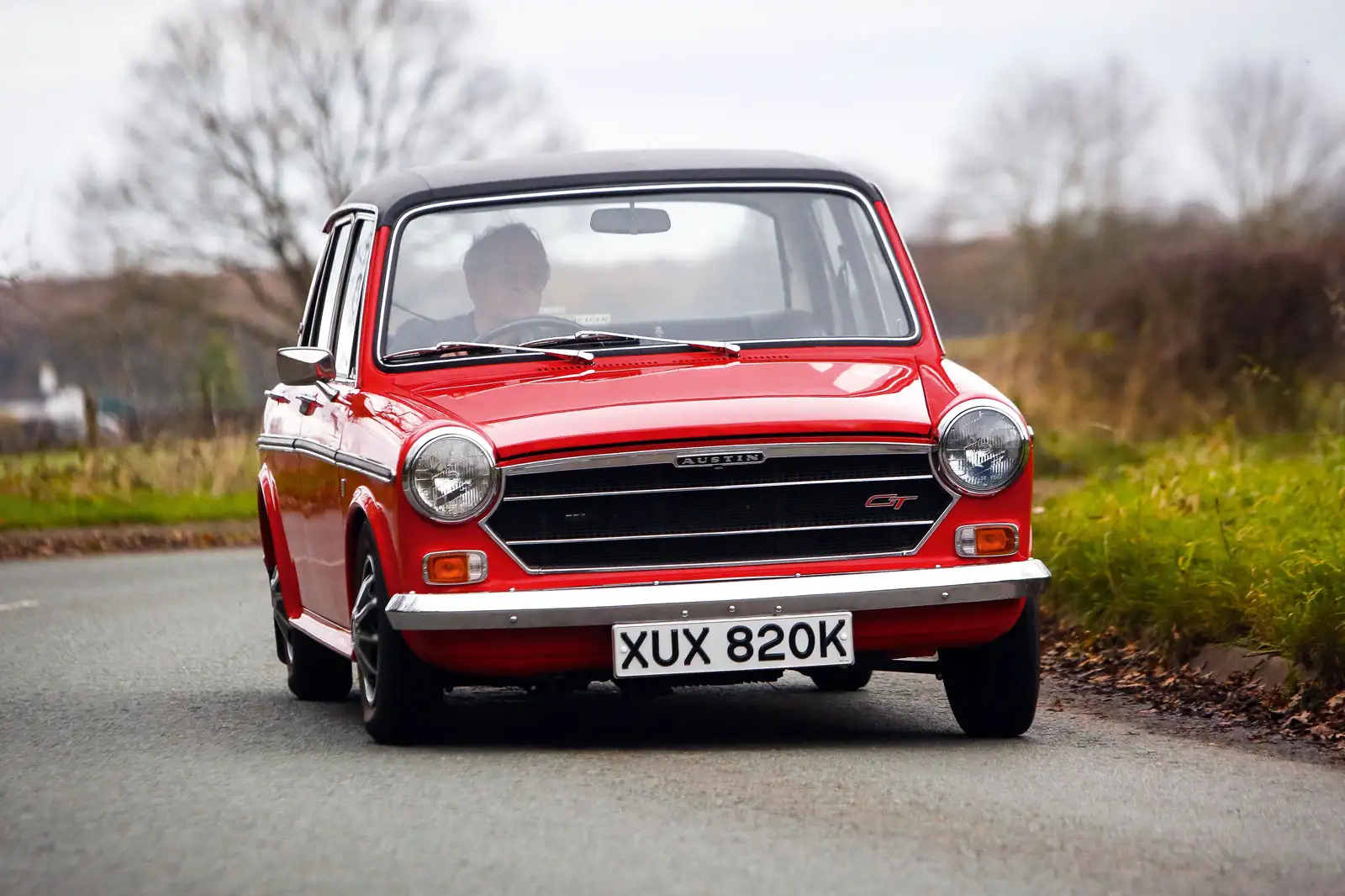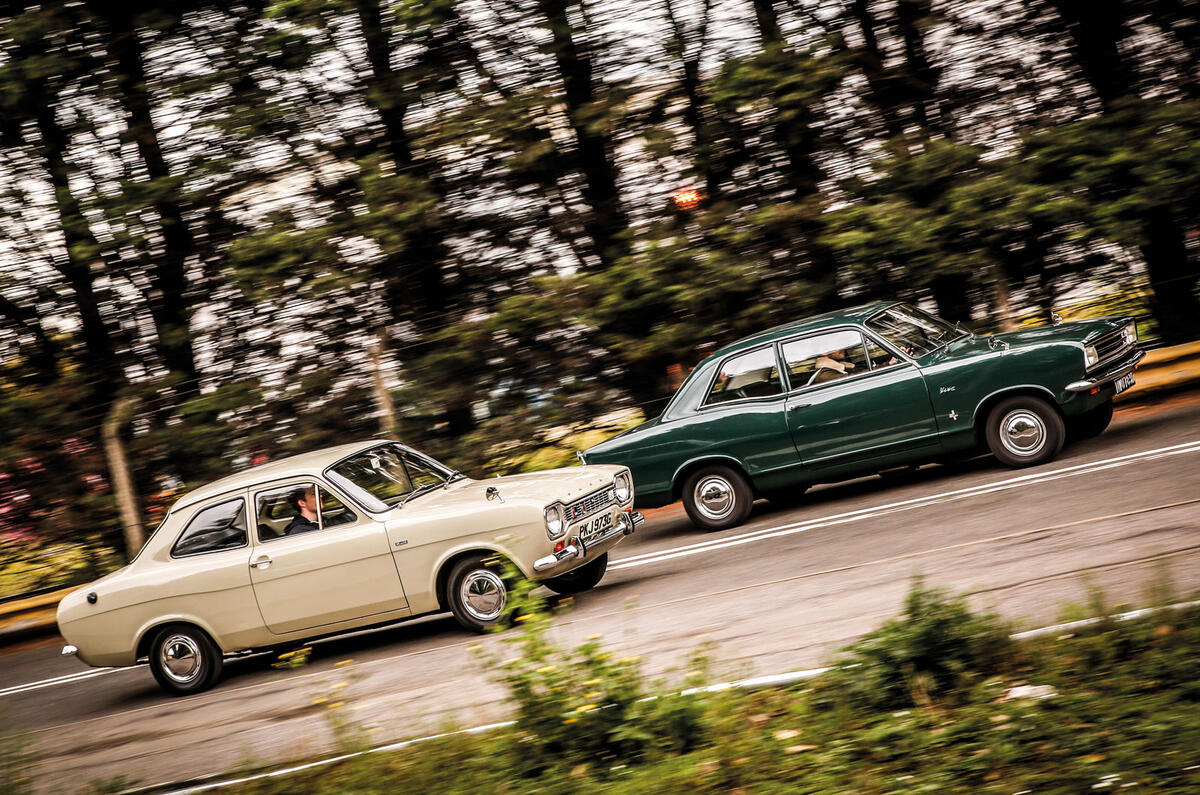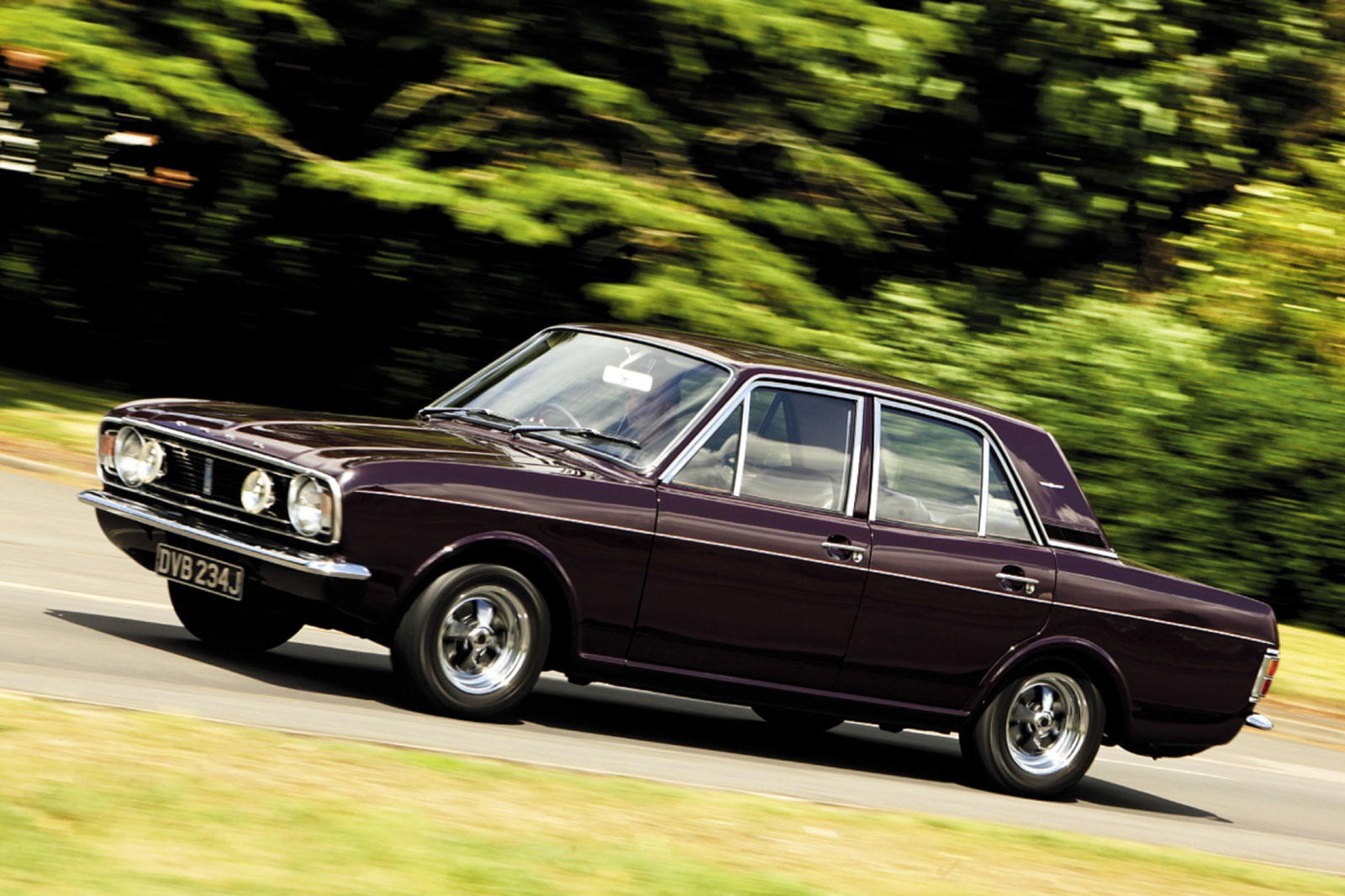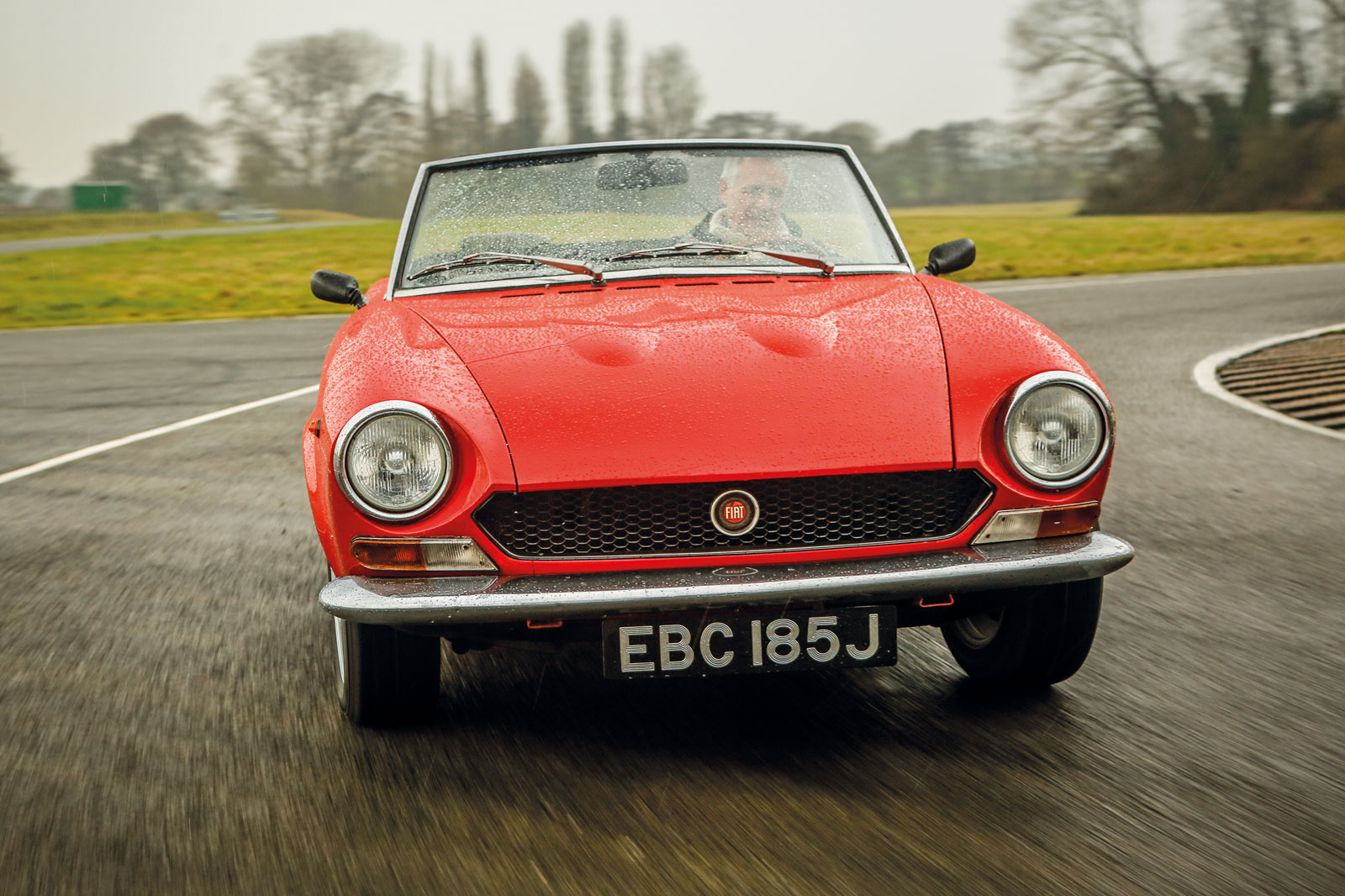Around 2.3 million new cars were sold throughout the UK last year (final figures are still to be announced). To the uninitiated, that figure may sound remarkably high, but it actually represents something of a dissapointment, being 2.8% down on the year prior and 14.6% of the all time peak – 2.7m – set in 2016.
Myriad factors are to blame, ranging from powertrain confusion and WLTP-related production restrictions to Brexit uncertainty. Nevertheless, the marketplace remains vibrant, filled with innovation and exciting, high-quality products.
And as the decade ends, it's an interesting exercise to see how different things were in this country half a century ago, another point at which the future seemed to be full of uncertainty. Could the brewing social and political troubles at home be remedied? What consequences would a potential entry into the European Common Market bring? And could we boost our global automotive exports?
 In 1969, Brits bought a total of 965,410 new cars. Even accounting for the enormous, uncontrolled population growth that has occured since then, that's a far smaller market than today; it meant about 1.7% of the population had taken delivery of a car that year, as opposed to 3.4% in 2019. And glory be, not an SUV in sight!
In 1969, Brits bought a total of 965,410 new cars. Even accounting for the enormous, uncontrolled population growth that has occured since then, that's a far smaller market than today; it meant about 1.7% of the population had taken delivery of a car that year, as opposed to 3.4% in 2019. And glory be, not an SUV in sight!
Most striking about the figures, though, is the domination of Britain's home manufacturers. It's almost inconceivable for younger generations that British companies could dominate in this field, seeing as our mainstream domestic industry today comprises Indian-owned Jaguar Land Rover alone.
Who would have thought that possible at the start of the 1970s, when 89.6% of cars sold here were Britsh? Today, it's just 14.9% – although it should be noted that some of these were built abroad, and a decent number of foreign-brand cars were built here.














 This most likely means Ford was the true leading brand 50 years ago, because Leyland was in fact a newly created group comprising a melange of brands: Austin, Daimler, Jaguar, Land Rover, MG, Mini, Morris, Riley, Rover, Triumph, Vanden Plas and Wolseley.
This most likely means Ford was the true leading brand 50 years ago, because Leyland was in fact a newly created group comprising a melange of brands: Austin, Daimler, Jaguar, Land Rover, MG, Mini, Morris, Riley, Rover, Triumph, Vanden Plas and Wolseley. 


Join the debate
Add your comment
Tragic waste,
What a tragedy BMC/BLMC/BL/Leyland was. Couldn't recognise when they had something decent to develop and held on to crap decades after its sell by date. The Triumph Dolonite Sprint, along with the Rover P6 should have been the springboard to greatness that could have turned them into an engineering powerhouse to rival BMW. Little innovation left in the current crop of UK manufacturers, no idea how we can recover to be able to make relevant mass market cars for the future.
A waste indeed...
The rest of Europe dilutes the value of the Euro in favour of the Germans, but that same common currency has prevented the others from doing their traditional currency devaluations that previously provided cheap Alfas, Fiats and Spanish holidays. Would BMW be such a powerhouse without the Euro. Definitely not.
The real problem has been North Sea oil and culture. Oil strengthened Sterling, making our labour very expensive, and almost impossible to compete so that the motorcycle, lorry, coach, aircraft, car, shipbuilding & steel industries have nearly all gone. And, for the most part, the British cultural response was to cut costs. And if you don't have the lowest costs in the industry, which obviously we didn't, that just causes lower margins as your product quality/content is squeezed, right up until you go out of business. Maybe because of the World Wars, there was a bit of a make-do-and-mend mentality, so on top of the underlying exchange rate issue, there was a cycle of low investment, lower volumes, and then lower returns for re-investment. This then further compounded by 'British amateur-winning(muddling)-through' mentality. Germans will employ/train a professional to do a job, where British will promote a self-confident but totally unqualified individual to a level of incompetence and then wonder why it all goes tits up.
TOO TRUE - I have seen too
40 years in the EU has decimated UK manufacturing.
50 years ago most of the cars sold in the UK were also made in the UK. Fast forward 50 years & most of the cars sold today in the UK are made in mainland Europe. So joining the EU has only benefited German, French & Italian manufacturers.
Jagwavey
Hahahahahahahahhahahahahahahahahhahahahahahahahahahahhahahahahahhahahahah...
jagdavey wrote:
Don't be ridiculous. British Leyland built utter garbage for the most part, dogged by ineffectove management and entitlement-craving socialists. Ford wasn't British, Rootes sold out to Chrysler and in turn PSA, and Vauxhall was foreign-owned since 1926. Blame the British consumer for not being interested in Rover products which were languishing on the vine in the first place.
While you ignore the facts, you are in for one monumental wake-up call in the months ahead.
The cars they had in the most
Then there was the Government, they funded the company but made sure that they had to cut costs and not staff, that's NOT the way you do business, you look at all costs, and make necessary changes, not just destroy the product so the staff can get paid.
The company actually designed some really good cars, but due to the above, they were not built to the best of the quality they deserved - BUT, neither were ANY cars back then, Vauxhall was even worse, their designs were outdated, plain, and totally rubbish, Fords were not that special either.
When you go to classic car events, as i do, you see very few Vauxhall's. and not many Fords from the 50's-60's but BMC, they are everywhere, From Mini, to Minor, MG, to Riley and everything else inbetween, so that says something.
Generally last longer so of course you need fewer built
Cars are way better built these days, expect 200,000 miles with air con, electric windows, DAB, and central locking with a 0-60 of 9 seconds being considered average. I grew up with Minis, Alfas, Escort MK1s which disappeared due to rust after 100,000 miles
xxxx wrote:
"central locking with a 0-60 of 9 seconds"...what would you say would be an above average time for central locking to cover the 0-60?. Fool.
Go away
Go away
Paul Dalgarno wrote:
He doesn't have a Corsa. He inherited his mum's Micra when she died.
xxxx wrote:
!00,000, bloody he11 that's very optimistic LOL, more like 15,000 and the car would be rusted to nothing.... he he he